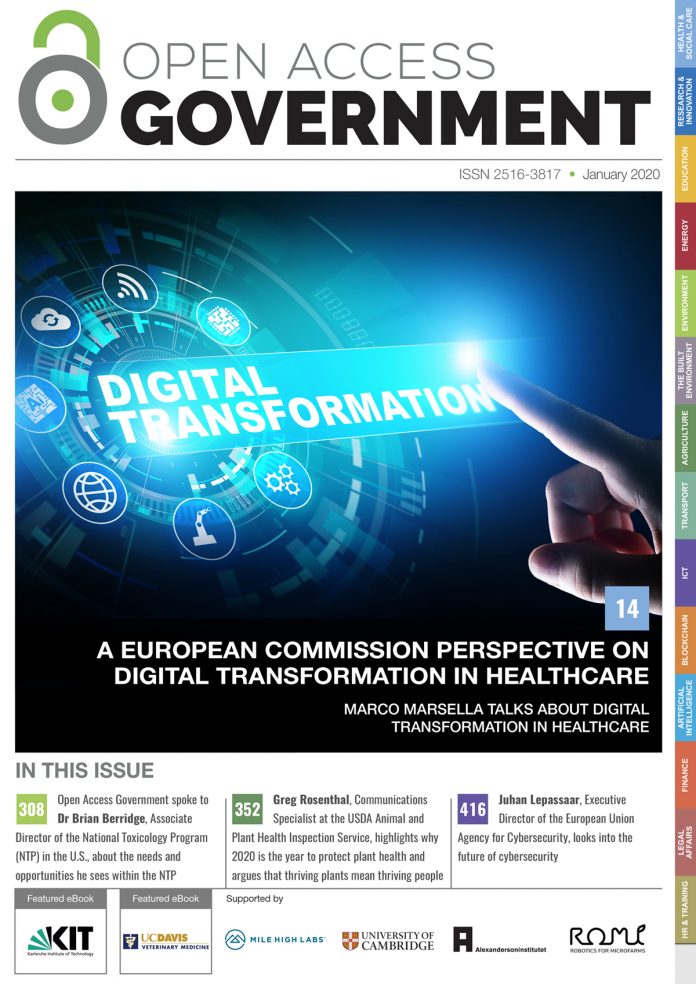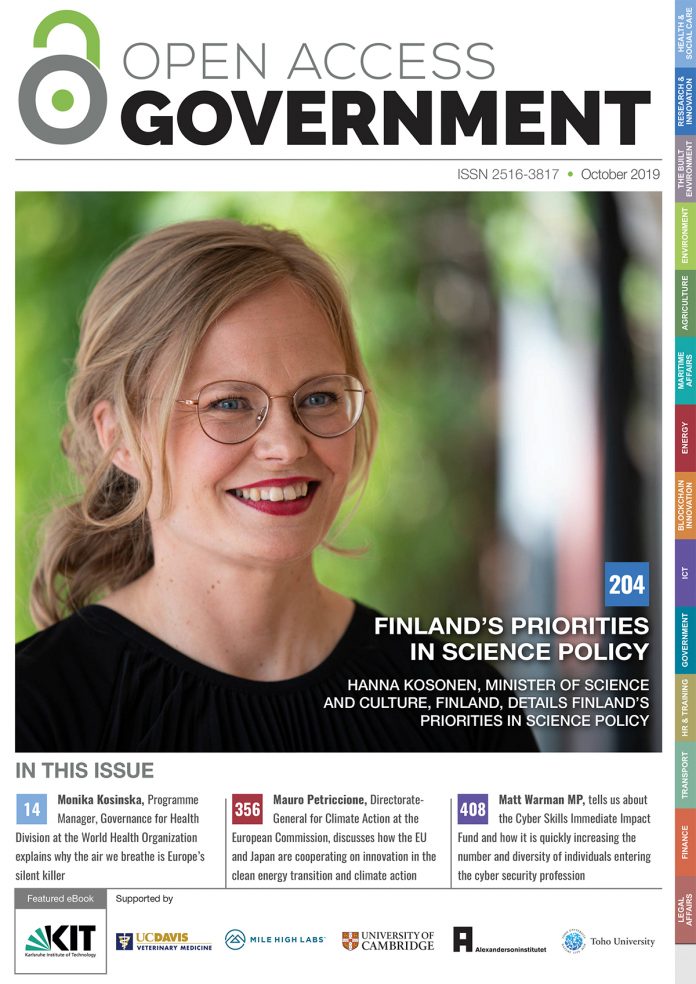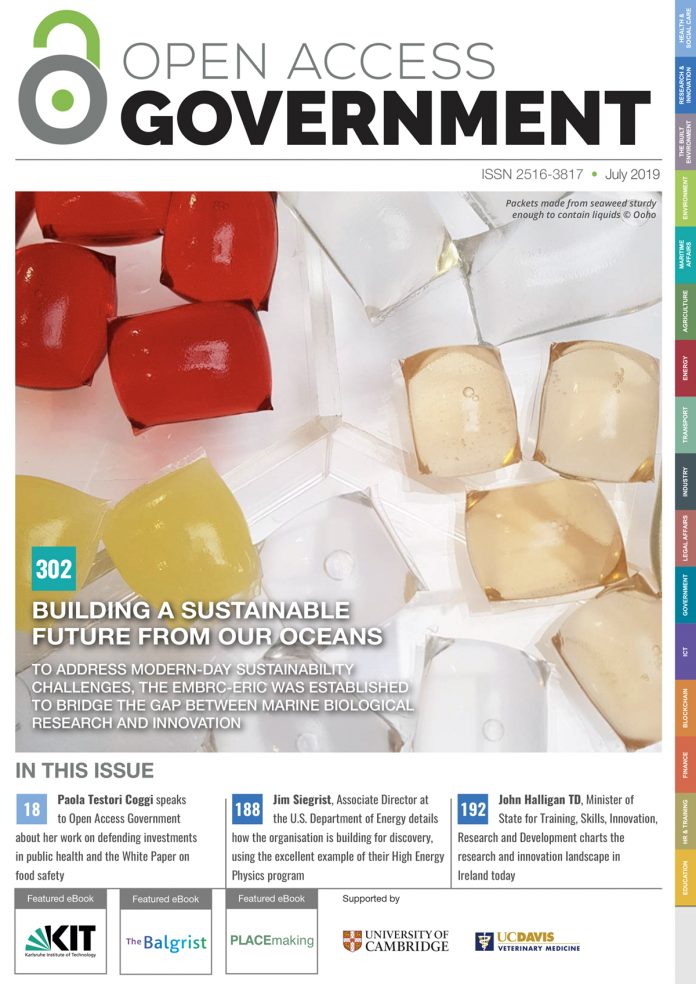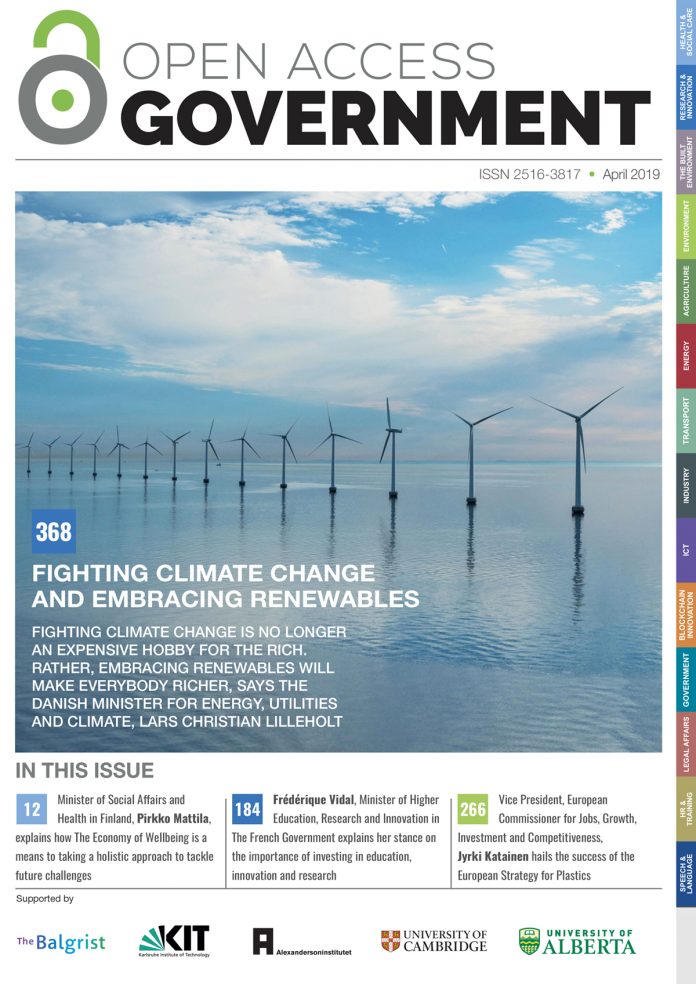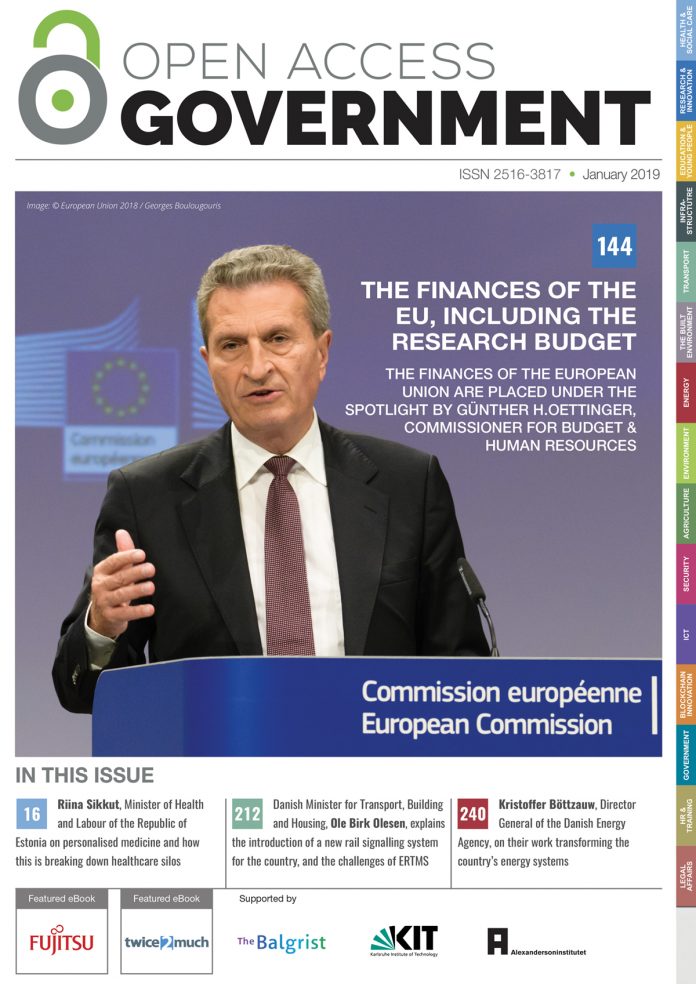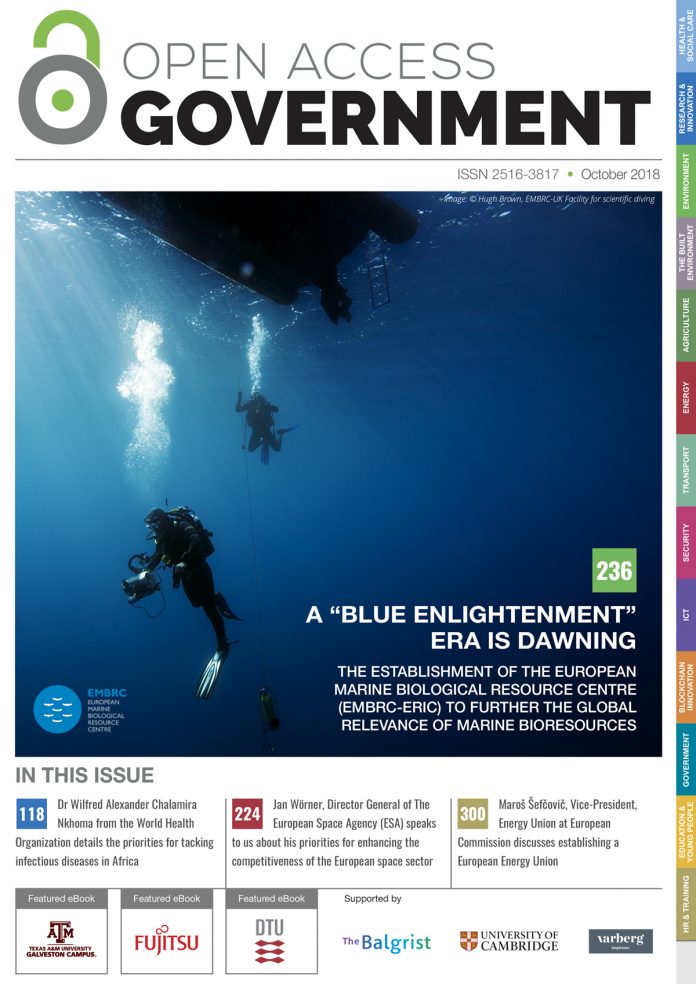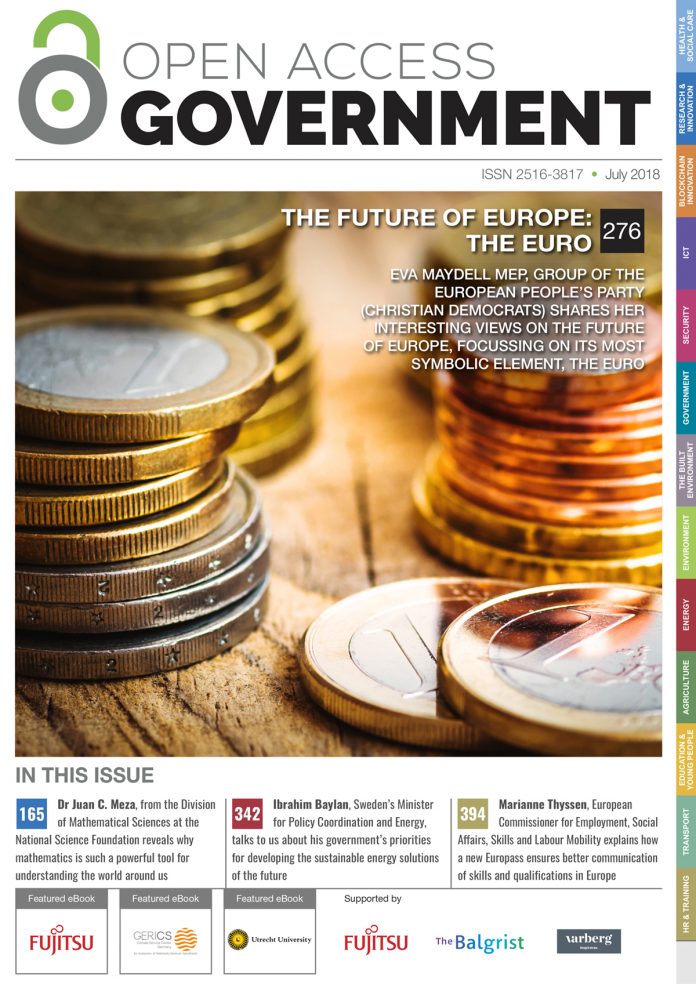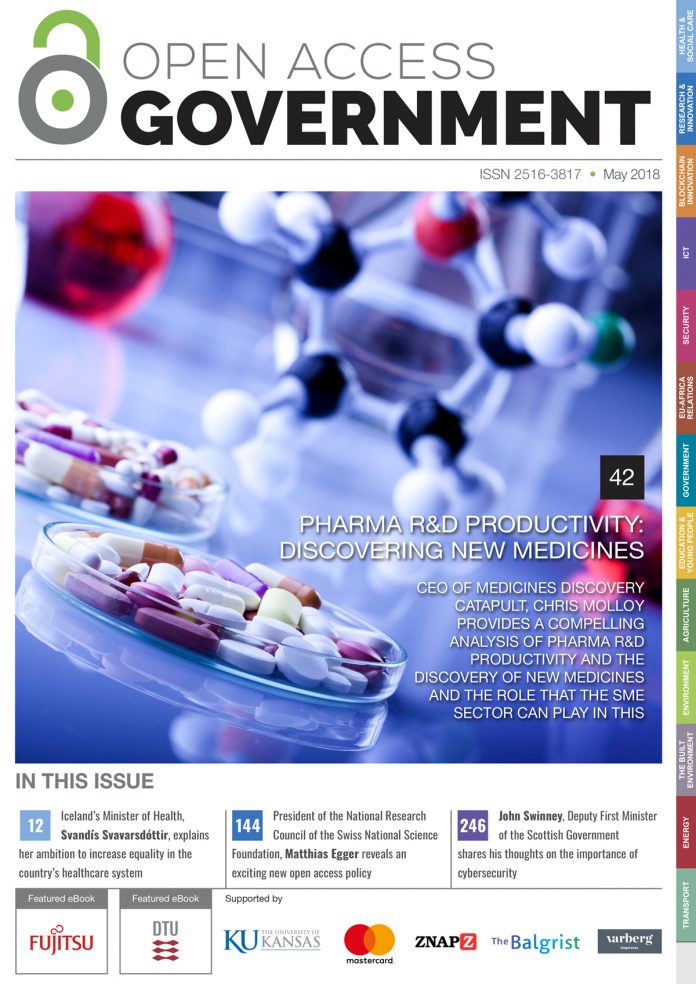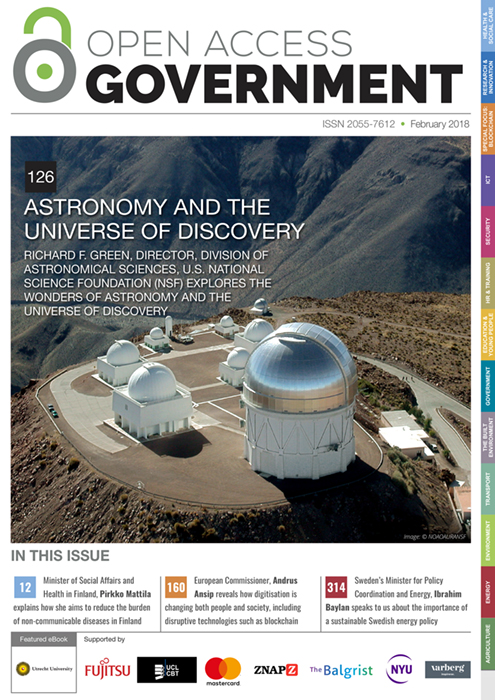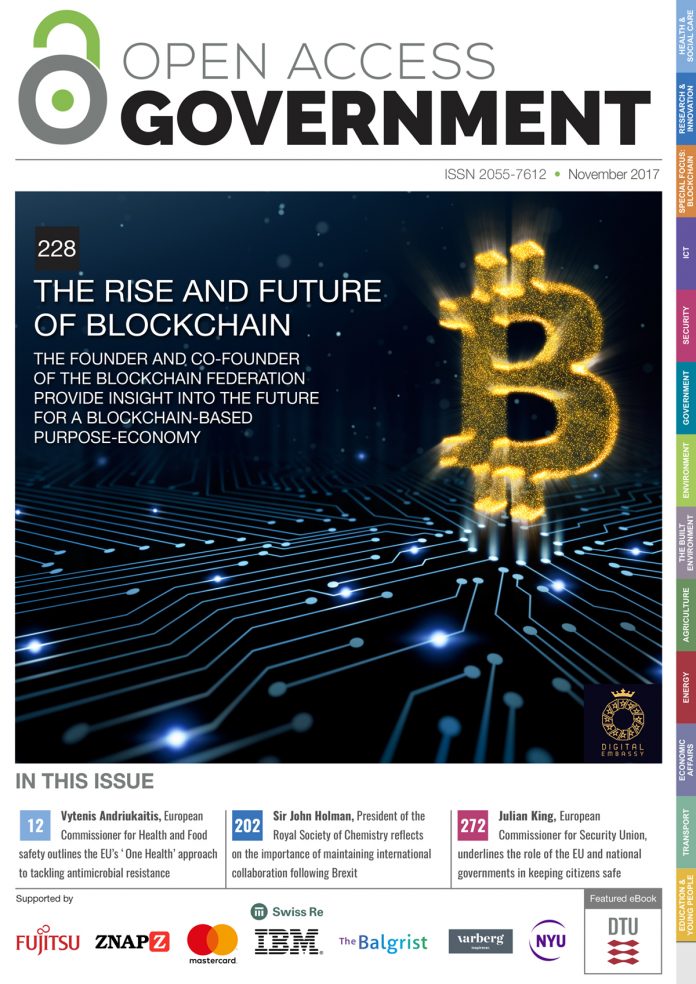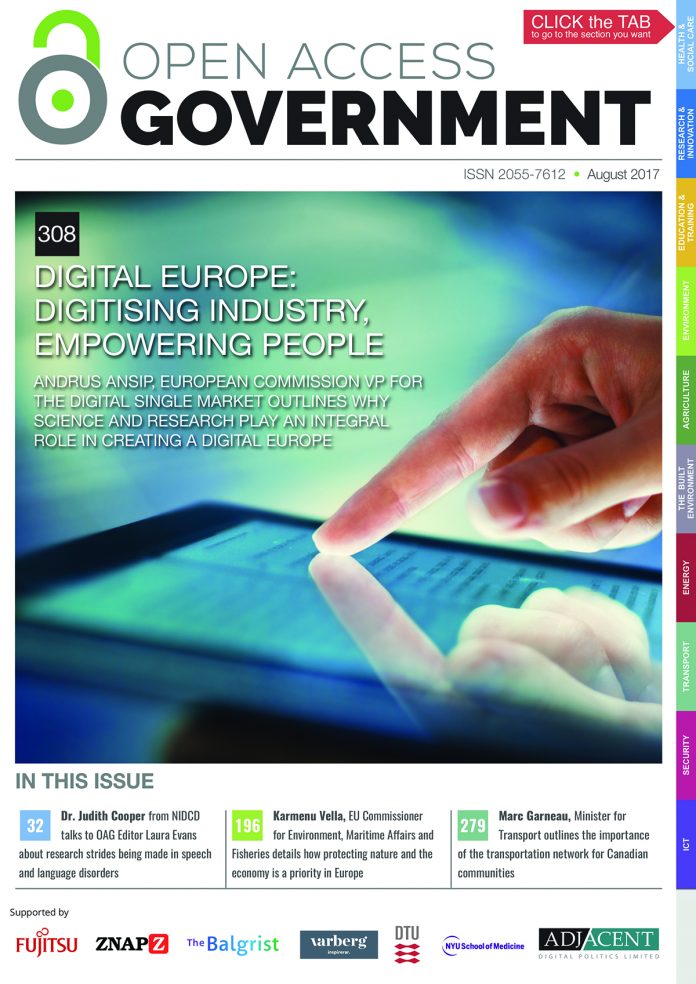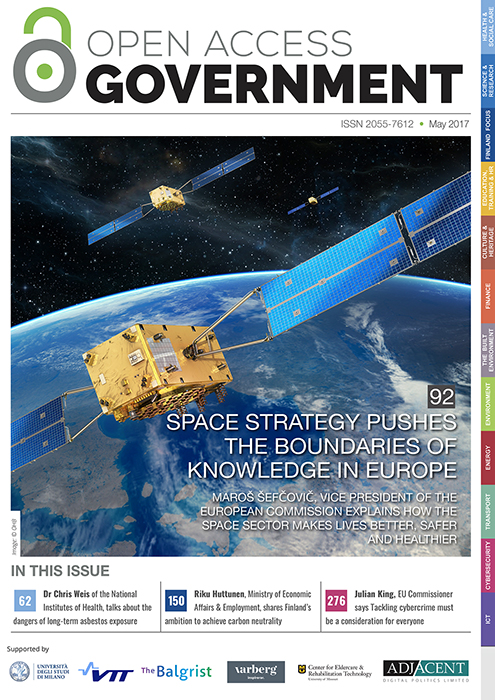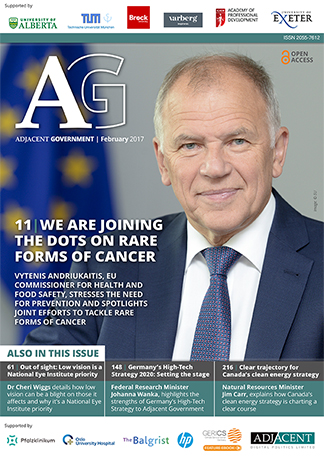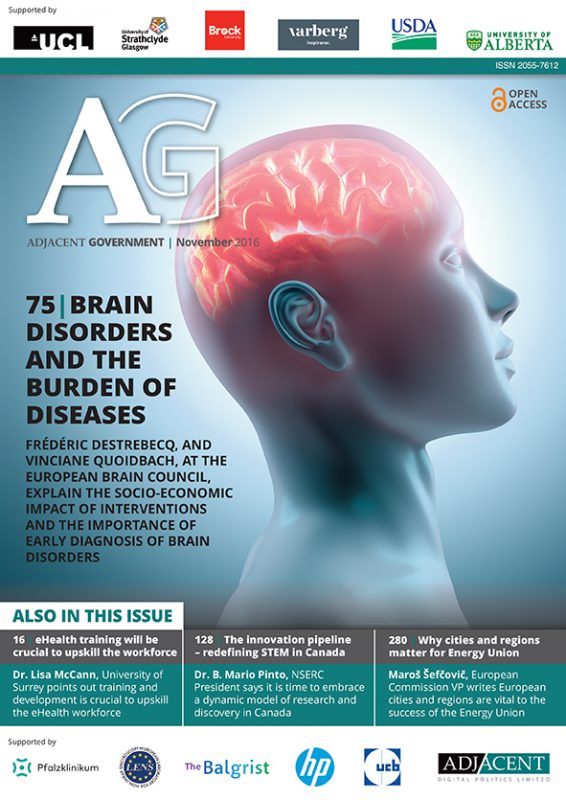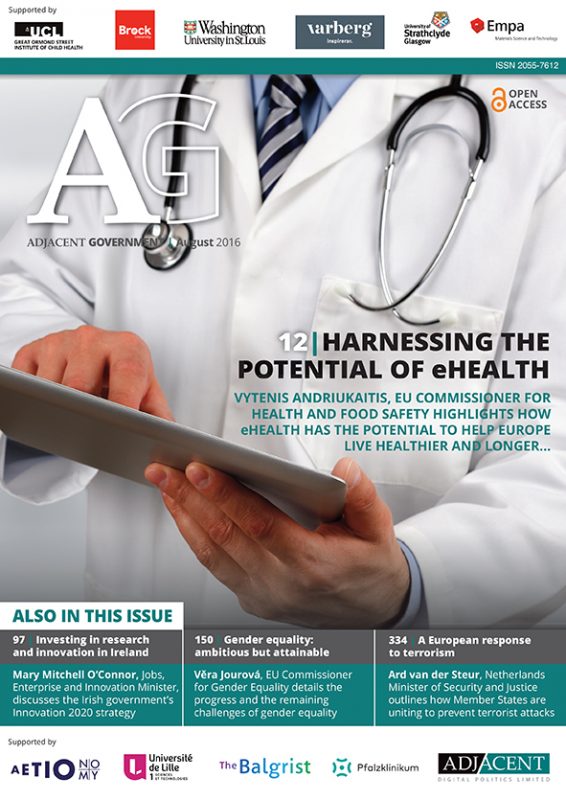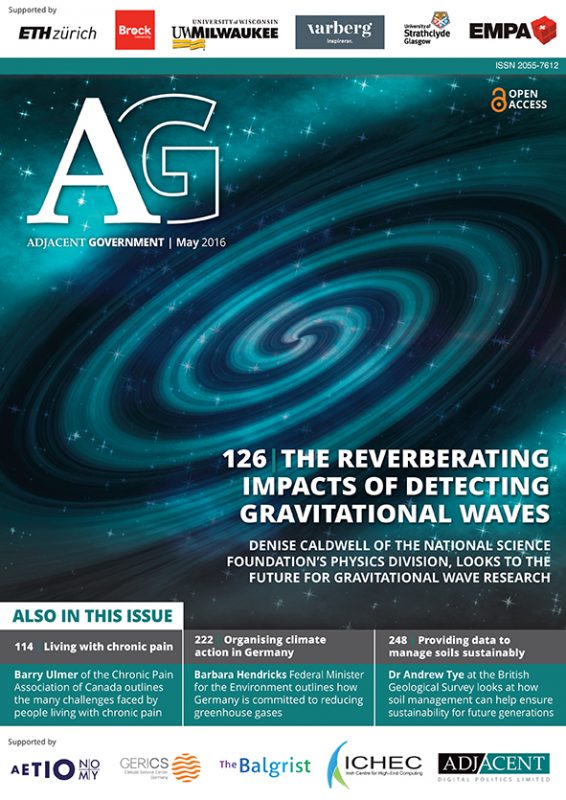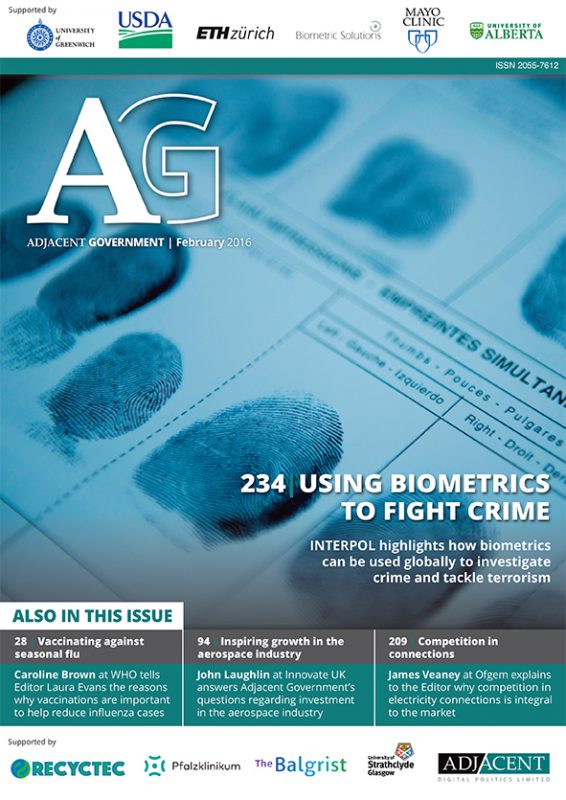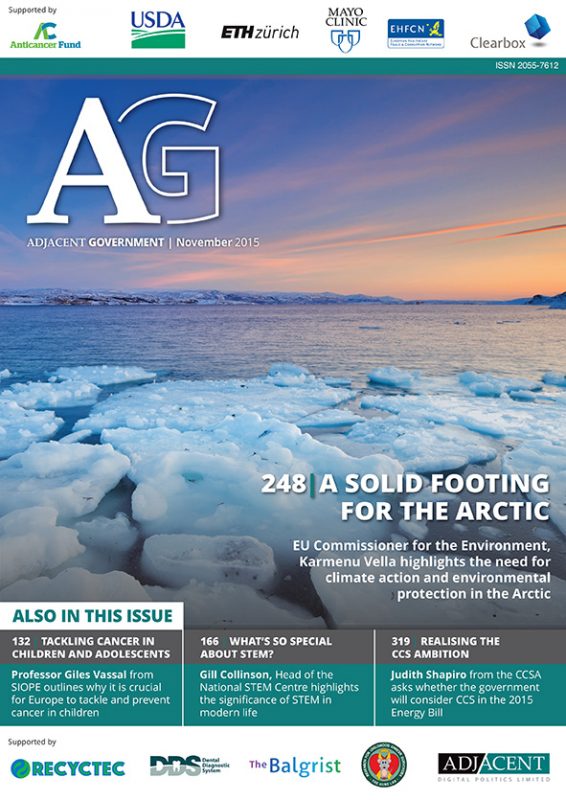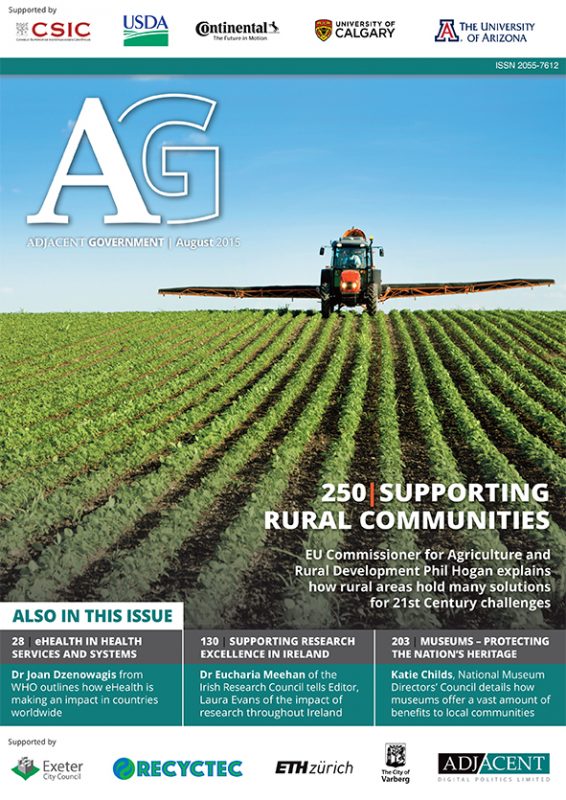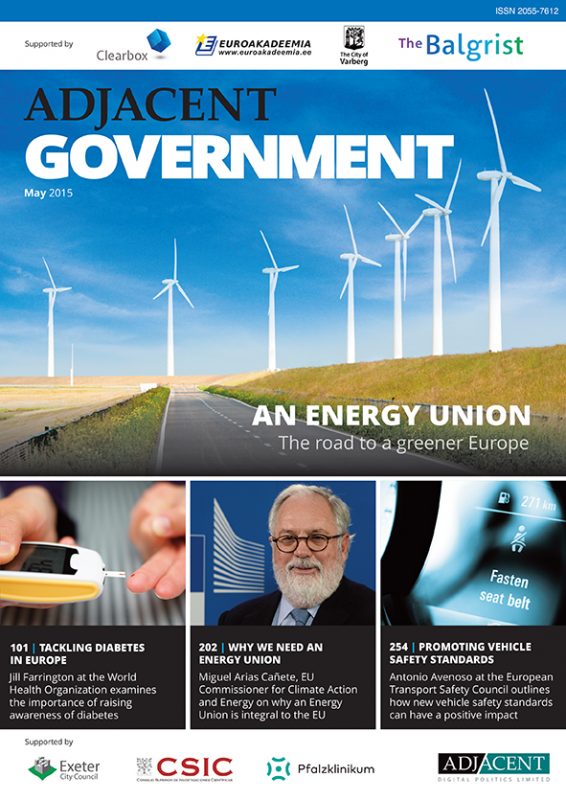Open Access Government January 2020 has arrived! Here, you can learn about numerous government policy issues globally, such as health and social care, research and innovation, environment, agriculture, energy, transport, ICT, legal affairs plus HR & training. There is also a special section all about medical cannabis & CBD
A selection can be found below:
A European Commission perspective on digital transformation in healthcare
Marco Marsella, Head of Unit, Directorate-General Communications Networks, Content and Technology (DG Connect), European Commission, speaks to Open Access Government about digital transformation in healthcare, including a special look at artificial intelligence
Early detection is crucial to prevent blindness from diabetic retinopathy
Emily Y. Chew, M.D., Director of the Division of Epidemiology and Clinical Applications and
the Deputy Clinical Director at the National Eye Institute, part of the National Institutes of Health, examines why early detection is crucial to prevent blindness from diabetic retinopathy
The medical cannabis market in Denmark & Europe
Investment Manager at the Ministry of Foreign Affairs of Denmark, Michael Prytz,
charts the rapid development of the medical cannabis market in Europe and provides
a look at the Danish model in this vein
Science: Answering fundamental questions, creating solutions and contributing to sustainable prosperity
Dr Deirdre Black, Head of Research & Innovation at the Royal Society of Chemistry, argues the case here for science to fulfil its potential to answer fundamental questions, create solutions to global challenges and contribute fully to sustainable prosperity
The National Toxicology Program: Needs and opportunities
Open Access Government spoke to Dr Brian Berridge, Associate Director of the National Toxicology Program (NTP) in the U.S., about the needs and opportunities he sees within the NTP
A new era of scientific discovery in weather and climate
Dr Anjuli S. Bamzai, Division Director for Atmospheric and Geospace articulates why the research community is at the cusp of a new era of scientific discovery in weather and climate, enabled by innovative cutting-edge technologies Dr Anjuli
2020: This is the year to protect plant health!
Greg Rosenthal, Communications Specialist at the USDA Animal and Plant Health
Inspection Service highlights why 2020 is the year to protect plant health and argues
that thriving plants mean thriving people
Completing the European energy market must be a top priority for the future
Tommaso Di Fazio, Member of the European Economic and Social Committee, explains why
completing the European energy market must be a top priority for the future of Europe
Green transport: Combatting the impact of fossil fuels
Cllr David Renard, Chairman of the LGA’s Economy, Environment, Housing and Transport Board and Leader of Swindon Borough Council, outlines here how new vehicle technologies and other measures can help combat the impact of fossil fuels
A spotlight on the future of cybersecurity in the European Union
Juhan Lepassaar, Executive Director of the European Union Agency for Cybersecurity,
looks into the future of cybersecurity
The rapid growth in artificial intelligence in Japan
Agnieszka Kuczynska from EU-Japan Centre for Industrial Cooperation,
details the current rapid growth in artificial intelligence in Japan

